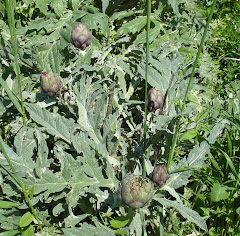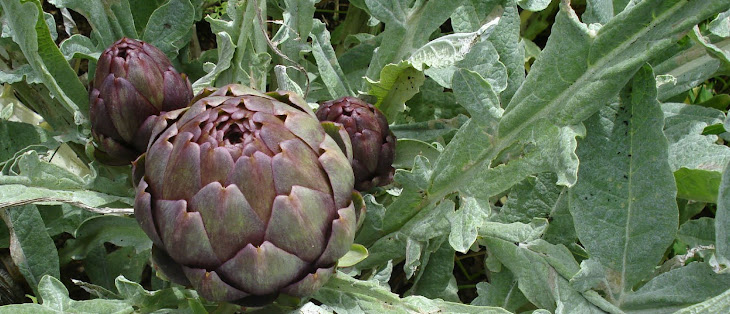Today it's International Women's Day and I want to celebrate women who garden. There are well-known women gardeners such as Vita Sackville-West, who created a beautiful garden at Sissinghurst in the south of England, and Gertrude Jekyll, who collaborated with the architect Edwin Lutyens and designed gardens for members of the Arts and Craft movement in nineteenth-century England. But these women, talented as they were, were privileged and well-off.
C'est la Journée de la Femme et je voudrai fêter les femmes qui jardinent. Les jardinières fameuses, comme Vita Sackville-West et Gertrude Jekyll étaient privilégiées et riche, même si elles étaient douées.
Ever since human beings stopped being hunter-gatherers, settled down and began to develop horticulture, women have gardened. They have grown fruit and vegetables so that their families would have food. They are unrecognised but important, supporting their families and communities and passing on knowledge of plants to the next generation.
Depuis que les humains ne sont plus des chasseurs-cueilleurs, les femmes jardinent. Elles cultivent les fruits et les légumes pour que leurs familles puissent manger. Elles sont inconnues mais importantes.
One of my early garden role models was my grandmother. After a hard working life, finally in her sixties she owned her own house and garden in rural west Wales. The land was high above sea-level and the climate was cold and damp, but she loved vegetables, so she grew them. She was a vegetarian before it was fashionable and very eccentric, but decades later many of her neighbours still remember her gardening and her knowledge of healing plants.
Ma grandmère, végétarienne avant le mot et très excentrique, était mon premier modèle à émuler. Elle cultivait son jardin au climat froid et humide de l'ouest du pays de Galles et ses voisins se souviennent toujours sa connaissance des plantes curatifs.
One of the poems in my sequence based on her life, published as In Sight of the Sea, celebrates
her last years spent coaxing
from the stony ground rows of beans
and peas, the rhubarb plant famed
for its strength, seeing the future
beyond her, planting the Mediterranean
pines of her memory.
'A House of her Own'
All over the world women grow food, unnoticed and unrewarded except by their families, in difficult climates, in poverty and in challenging or dangerous political and social conditions. In South Africa, in a 'revolution fuelled by organic vegetables', women are cultivating community food gardens, like the one at Gugulethu described by Helen Kilbey in this article on allAfrica.com, and they find the experience empowering. In Rawfi in Niger women grow cabbages, onions and carrots in the plot shown in this video:
And water the plot ...
After seeing this clip, we'll all appreciate our running water, taps and hose pipes more.
Happy Women's Day!









2 comments:
Thanks for this post! I used to celebrate 8th of March when lived in Russia. Sadly, very few people know about this day here in the U.S.
What a pity International Women's Day isn't celebrated in the US.
Post a Comment